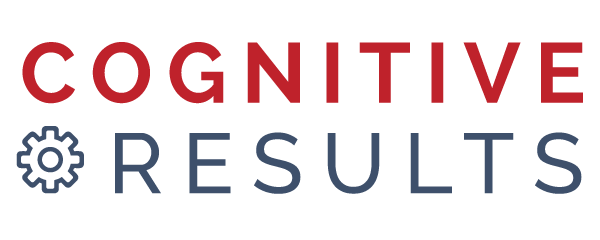Mental Preparation for Police Testing
Mental Preparation for Police Testing
Preparing for police tests involves more than just memorising facts and reviewing materials. While studying is essential, mental preparation for police testing can be the key to succeeding when it matters most. In addition to studying, mental strategies can ensure candidates remain calm, focused, and confident during their police tests. In this post, we'll explore how mental strategies can enhance your performance and how Cognitive Results' academic practice programs for police testing in Canada and members-only coaching programs can give you an edge.
1. Managing Stress
Stress can significantly impact test performance, especially in high-stakes environments like police testing. Learning how to manage stress is crucial to staying focused and performing at your best. Techniques such as deep breathing, mindfulness, or visualisation can help calm your nerves and clear your mind.
Here are some highly-rated apps that can help you manage stress effectively:
- Calm: This popular mindfulness app offers guided meditations, breathing exercises, and sleep stories designed to reduce stress and anxiety. Calm helps you develop a consistent practice to manage stress before and during tests.
- Headspace: Another excellent app for mindfulness, Headspace provides guided meditation sessions focused on stress relief, focus, and performance. It's a great tool to use when preparing mentally for police testing.
- Breathe2Relax: A simple yet effective app focused on diaphragmatic breathing, Breathe2Relax guides you through breathing exercises to help reduce stress and increase relaxation.
- MyLife (formerly Stop, Breathe & Think): This app allows you to check in with your emotions and offers personalised mindfulness and meditation practices based on how you're feeling.
- Insight Timer: This app has thousands of free meditations and relaxation exercises led by experienced teachers. It's a great option if you want a variety of tools to manage stress.
At Cognitive Results, we incorporate stress management techniques into our academic practice programs for police testing in Canada and our members-only coaching programs, offering personalised strategies to help candidates stay calm under pressure and excel during their tests.
FAIL TO PREPARE ... PREPARE TO FAIL

2. Building Confidence
Confidence plays a vital role in how well you perform in any test. When you believe in your abilities, you're more likely to succeed. Building confidence isn't just about positive thinking-it involves actively practicing and preparing to feel equipped and self-assured when test day arrives. Here are some effective ways to build confidence:
- Visualisation: Picture yourself successfully completing the test. Visualisation has been shown to reduce anxiety and increase confidence by helping you mentally rehearse the experience of success.
- Small Wins: Set small, achievable goals during your study sessions. Reaching these mini-goals will provide regular boosts of confidence and help reinforce a sense of progress.
- Practice, Practice, Practice: The more familiar you are with the material and the format of the test, the more confident you'll feel. Repetition builds competence and reinforces your belief in your ability to succeed.
In addition to these strategies, here are some apps that can help boost your confidence:
- Fabulous: This app focuses on building habits and routines that promote a confident mindset. By setting small goals and achieving them daily, you can build a strong foundation of self-belief.
- Shine: Shine offers motivational messages and confidence-boosting audio tracks. It includes daily affirmations and meditations designed to help you develop a positive and confident outlook.
- ThinkUp: This app allows you to record and listen to your own positive affirmations. Hearing your voice speak affirming words regularly can reinforce a confident mindset, especially leading up to test day.
Cognitive Results' academic practice programs for police testing in Canada and members-only coaching programs are designed to build both knowledge and confidence, providing personalised support so that you walk into your test feeling prepared and self-assured. With regular practice and the right mindset, confidence will come naturally.

3. Staying Focused
Focus is essential, both in your test preparation and on test day. Maintaining concentration can be difficult with distractions and stress, but there are ways to improve your focus. Set clear goals, take regular breaks during study sessions, and use mindfulness techniques to stay centred.
In addition to traditional techniques, there are several apps designed to help with focus and productivity. Here are a few that can help police test candidates stay on track:
- Forest: This app encourages you to stay off your phone by planting a virtual tree that grows the longer you focus. If you leave the app, the tree dies, helping you stay focused for designated time periods.
- Focus@Will: This app provides scientifically engineered music to help improve concentration. It's perfect for long study sessions, helping you maintain focus through calming soundtracks.
- Pomodone: Based on the Pomodoro technique, this app helps you work in short, focused intervals followed by breaks, allowing you to manage study sessions in a way that maximizes productivity.
- RescueTime: This app tracks how you spend your time, providing insights into your daily habits. It helps you identify distractions and encourages productive study habits.
Cognitive Results' academic practice programs for police testing in Canada and members-only coaching programs are tailored to help candidates stay focused and on track, providing tools and strategies that ensure you make the most of your study time.

4. Developing a Test-Day Routine
Even though police testing is conducted online, having a structured test-day routine can still ease anxiety and set you up for success. Here are some practical steps to include in your routine:
- Night Before Prep: Ensure your computer, internet connection, and testing environment are ready. Check that you have the necessary login credentials, a charged device, and any allowed materials nearby.
- Tech Check: Test your equipment in advance to avoid technical issues. Make sure your internet connection is stable, and your camera, microphone, and any required software are working correctly.
- Sleep & Nutrition: Prioritize a good night's sleep and eat a light, balanced breakfast before your test. Avoid heavy meals that could make you feel sluggish, and opt for something that will keep you energized and focused.
- Quiet Workspace: Set up a distraction-free workspace where you won't be interrupted. Inform others that you'll be taking an important test and need quiet for the duration.
- Review & Relax: Take a few minutes to review your notes or practice questions, but avoid last-minute cramming. After reviewing, use a short breathing exercise or mindfulness session to calm your mind and reduce any pre-test jitters.
- Log in Early: Aim to log into the testing platform a bit early to ensure everything is working smoothly. This will give you time to get settled and be fully present when the test begins.
At Cognitive Results, we offer comprehensive academic practice programs for police testing in Canada and members-only coaching programs, where we help candidates develop their own test-day strategy, so they feel ready and in control.
5. Mimicking Real Test Conditions for Mental Preparation for Police Testing
Research shows that practising under conditions similar to the actual test can significantly improve performance. According to a study published in Psychological Science by Roediger and Karpicke (2006), students who engaged in practice testing outperformed those who only reviewed the material. This phenomenon, known as the "testing effect," highlights the importance of simulating test conditions during study. Link to study
At Cognitive Results, we carefully simulate test questions based on general feedback from clients. While we haven't seen the actual test, our simulated questions are refined and adjusted through client feedback to closely match the format and style of the real thing.
To prepare effectively, we recommend:
- Using a Timer: Practice answering questions within the same time limits as the actual test.
- Limiting Distractions: Study in a quiet environment that mimics test settings.
- Practicing with Sample Questions: Use materials that closely resemble the content and format of the real exam.
Our academic practice programs for police testing in Canada and members-only coaching programs include timed practice tests designed to simulate the real test environment, helping candidates improve their performance and enhance their mental preparation for police testing.

Conclusion
Mental preparation for police testing is critical to succeeding in these exams. By managing stress, building confidence, staying focused, and simulating test conditions, you can greatly improve your performance.
At Cognitive Results, we offer exclusive academic practice programs for police testing in Canada and members-only coaching programs. If you're ready to take your preparation to the next level, explore our programs for comprehensive test and interview preparation. Let us help you achieve success.
Latest Testimonials:
"(Police Tests) Program is worth way more than for what it is priced at. The material is super helpful and the practice is very, very in depth and will get you accustomed to how the test feels. I suggest you do timed testing to see if you are working at a good pace. I scored 87% on my ETHOS and only did so due to the great material that was available to me as well as my hard work. Work hard and use this material and you will do amazing." June 2, 2025
"The psych interview was exactly what I expected after our coaching. I'm in backgrounds now with XXX. Thank you Gillian." May 26, 2025
"I’m happy to share that I received my OTEE test results — and I passed with a great score! The study materials, especially the timed practice tests, were incredibly helpful and definitely made a difference in my performance." May 25, 2025
"Thank you so much for all your help and support throughout the process — I truly appreciate it! I completed the CBSA OTEE test last week, and I wanted to let you know that the material you provided was incredibly helpful. It gave me the confidence I needed to go in prepared, so thank you again for that." May 14, 2025
"I passed everything, the XXX LFI and the blended interview, and now I'm moving on to the psych and the in-person psych next week. Thank you for the coaching! You made the difference." May 14, 2025
"Hi Gillian, I have good news! I got the psych results and I was successful!!! Thanks again for all the help and wisdom!" May 11, 2025
HIRED! "I used Cognitive Results for preparation in my police hiring process. All the material for ETHOS was very helpful in order to prepare for the exam. Gillian was an amazing instructor her feedback was very genuine and provided great helpful tips. Her feedback was very informative. I highly recommend using Cognitive Results if you want to succeed in your police application process." April 19, 2025
"Hi Gillian, I am a returning client that has used this service for years. Thanks to this program I passed the written test for XXX, was hired, and now I want to make a career change. I've passed the interview for XXX and now I'm waiting for the psych." April 8, 2025
"Thanks it went very well waiting on next steps. No surprises. Thank you so much. (Coaching client West coast service interview.)" March 20, 2025
"Hi Gillian, I wanted to thank you officially for all of your help through the XXX police process (West Coast service). The ETHOS program was so thorough and raised my confidence. I landed an interview that you helped me prepare for with your excellent coaching. The coaching helped me with my delivery and answers but, more importantly, got me thinking and talking in the right ways to project my accurate answers with confidence. I can't recommend you enough! Thank you so much!" March 12, 2025
"Hi Gillian, I have some great news to share. I was successful in the interview for CBSA and will be moving to the next steps of the selection process. I had my interview Friday and I found out today. Thank you again for all your teaching they were extremely informative. I also passed along your website to ... I will continue to pass along your site to anyone I meet that can utilize the information. I don’t know when I’ll be doing the psych part yet but I will be studying." March 5, 2025
HIRED! "Thank you for all of your help and support through this process! To recap I received my offer with XXX two weeks ago for the March intake at OPC. I know that all of the studying I did on your website has also prepared me for the next stage. Everything you teach is accurate and well worth the investment. I am glad I found you and got all of the guidance I needed along the way, including coaching. I will be recommending you in the future to other police applicants - you are the best!" February 16, 2025
